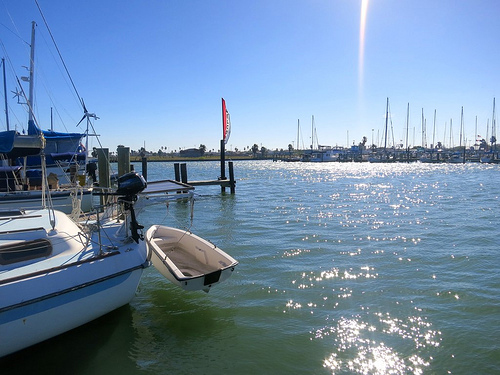- La Feria Community Holds Succesful Business Mixer Event
- Little Nashville to Take Place in Downtown Mercedes
- Lions Basketball Captures District Gold
- La Feria ISD Students Compete in Regional Chess Tournament
- Lions End First Half of 32-4A on a High Note
- La Feria ISD Held Another Successful Parent Conference
- Strong Appearance for Lions at Hidalgo Power Meet
- LFECHS Students Get to Meet Local Actress
- Students Participate in Marine Biology Camp
- Two LFECHS Students Qualify for All-State Band
Making Sure Gulf Coast Restoration Funding is Used for Intended Purpose
- Updated: December 27, 2013
Fishing, Tourism and Oil Would Benefit from Healthy Gulf
by John Michaelson/TNS

When restoration funds from the Gulf of Mexico oil spill are allocated to the states, those who live and work along the coast want to make sure Texas lawmakers spend the money on its intended purpose. Photo: Bill Rand/TNS
PORT MANSFIELD, Texas – As plans are put in place to allocate restoration funds from the massive BP oil spill, Texans who depend on the Gulf Coast for their livelihood say its health is an economic priority.
Once the dollars are distributed, said Mike Sutton, a saltwater angler who owns Getaway Adventures Lodge in Port Mansfield, it’s vital that state lawmakers invest them properly “and that the funds do get spent for the purpose that they’re intended once they’re received and not get diverted to projects like, for example, infrastructure projects or other development projects here in Texas. While they’re critical needs, the funds are received for this purpose.”
Under the Restore Act, 80 percent of the fines collected from BP will go back to individual states for use in restoration projects.
The long-term benefit of returning a healthy ecosystem to the Gulf of Mexico, Sutton said, is not only the positive impact on water and wildlife but also to strengthen the region’s main economic engines.
“The fishing industry, the tourism industry and all that,” he said, “both the short-term and the long-term benefits are that that healthy ecosystem supports a healthy economy, both short term and for our children and our children’s children.”
Sutton said the oil and gas industry along the Gulf Coast also will benefit from wetlands restoration by providing a natural buffer against any possible catastrophic weather events.
“To help moderate the effects of hurricanes and storm surges and to help protect that infrastructure; and to moderate the damage that would occur if a big storm surge did come though and damage one of these large refineries,” Sutton said. “That would be another enormous environmental disaster.”
The Deepwater Horizon spill of 2010 was the largest environmental disaster in U.S. history, sending more than 4 million barrels of oil into the Gulf of Mexico.
Information on the Restore Act is online at treasury.gov.


